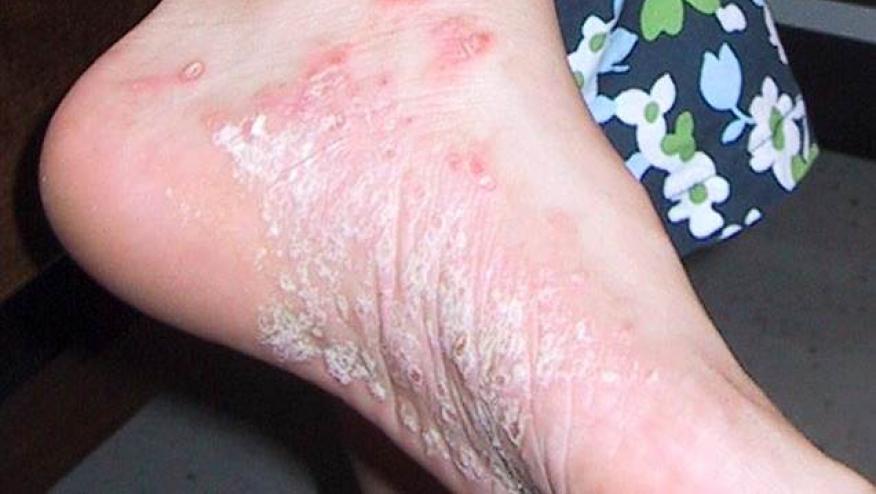ICYMI: Psoriatic Disease Management - RNL 2021 Highlights Save

This year’s coverage of psoriatic arthritis was once again, both exciting and informative. Topics included an overview of the latest therapeutic options, an excellent discussion on psoriasis specifically, and the epidemiology of psoriatic arthritis.
In terms of therapeutic developments for psoriatic arthritis, Dr. Eric Ruderman began by saying, “in psoriatic arthritis, a TNF inhibitor is a TNF inhibitor is a TNF inhibitor,” stressing the similar efficacies in this large family of biologics. The results of the SEAM study were recapped, where methotrexate held its own when used as monotherapy for treatment of psoriatic arthritis. In terms of newer biologics, IL-17 and IL-12/23 inhibition did have an increased response in skin improvement. However, IL-17 inhibitors can have unique toxicity potentials including worsening inflammatory bowel disease and increased risk of candida infections, but it would be appropriate to use IL-17 inhibition in patients with a family history of inflammatory bowel disease. When using IL-17 inhibitors, a higher dose may be necessary as secukinumab 300mg can be more efficacious than the 150mg dose.
For psoriatic arthritis patients with axial involvement, TNF inhibitors and IL-17 inhibitors are preferred, while early results on JAKinibs are promising. Response rates of newer biologics were comparable to TNF inhibitors, but head-to-head studies are still lacking. In terms of switching biologics, there is currently no need for a washout period and the new medication can be started as soon as it is prescribed. Lastly, apremilast continues to be a niche drug for a niche group as some physicians use it in combination with other drugs while some use it as monotherapy in a subset of patients who respond very well. While we may never have a perfect algorithm for which specific biologic to use, perhaps it’s time we step away for a one-size-fits-all approach and accept the fact that therapies should be individualized on a patient-by-patient basis.
In Dr. Alexis Ogdie’s discussion on the epidemiology of psoriasis and psoriatic arthritis, she recapped the 20% prevelance of psoriatic arthritis in psoriasis patients but also stressed the uncomfortable fact that there are still 15% of psoriasis patients who have undiagnosed psoriatic arthritis. These patients with unconventional or extra-articular pain are commonly misdiagnosed as fibromyalgia and as discussed by Dr. Arthur Kavanaugh during his talk on enthesitis, the difference between enthesitis and fibromyalgia pain can sometimes literally be inches. We are also starting to recognize a higher prevalence of depression in psoriasis and psoriatic arthritis patients, which begs the question, does emotional stress trigger flares of psoriasis and psoriatic arthritis or does the burden of disease cause worsening depression?
As rheumatologists, we always welcome discussions from our dermatology colleagues and Melodie Young’s discussion was an excellent overview of the different forms of psoriasis including plaque, guttate, pustular, and erythrodermic. There were excellent clinical pearls including the classic sites to evaluate for psoriasis include the ears, edges of the scalp and posterior scalp, flexures, below the socks, nails and gluteal cleft. In psoriasis patients, the Koebner phenomenon is described as psoriasis worsened by trauma or sunburns. In these patients, a switch in therapy may be needed as the original therapy may not be effective again. We should also note that there are many triggers of psoriasis flares such as infections (especially streptococcus), stress (pandemic skin is real), and medications including TNF inhibitors, immune checkpoint inhibitors, and beta blockers. However, in a patient with previously well controlled psoriasis, a severe flare should warrant an evaluation for infections such as HIV or an underlying malignancy. Lastly, remember that not every skin lesion that is pink and scaly is psoriasis. Cast a wide net and consider skin cancer, granuloma annulare, pemphigus, erythroderma.










If you are a health practitioner, you may Login/Register to comment.
Due to the nature of these comment forums, only health practitioners are allowed to comment at this time.